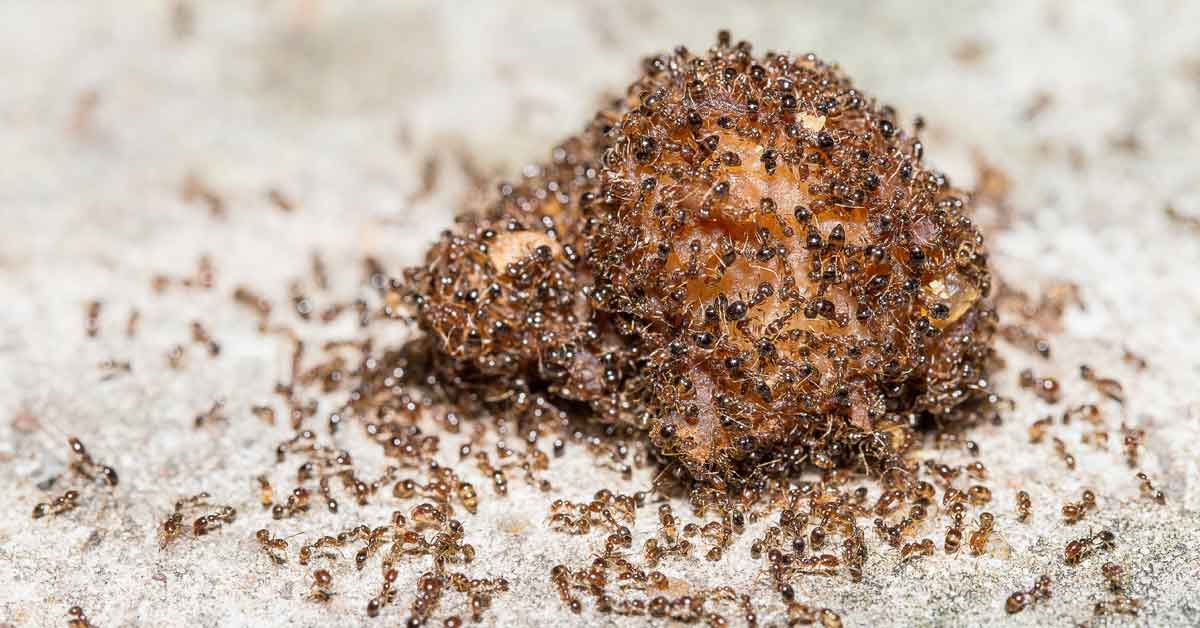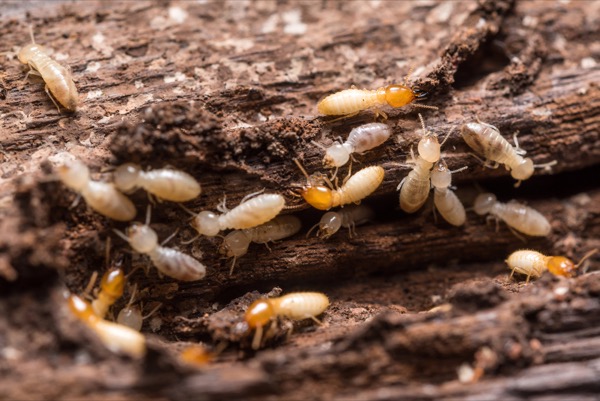Ecological Effect of Pest Control: Harmonizing Effectiveness With Sustainability
The ecological influence of pest control is an essential issue that requires a fragile balance in between attaining performance in making certain and managing pests sustainability of our environments. From the use of damaging chemicals that leak right into our soil and water to the unintentional repercussions on non-target types, the effects of conventional pest control practices are far-reaching.
Harmful Chemicals in Pest Control
The application of harmful chemicals in pest control presents substantial environmental and health and wellness threats that necessitate mindful factor to consider and reduction approaches. Chemicals, herbicides, and pesticides are generally used to eliminate pests, however their prevalent application can bring about unplanned repercussions. These chemicals can contaminate dirt, water resources, and the air, impacting not only the targeted insects yet likewise useful bugs, wildlife, and human beings.

To deal with these dangers, incorporated bug administration (IPM) methods are being promoted as an extra lasting alternative. IPM involves a mix of approaches such as organic control, habitat adjustment, and the targeted usage of pesticides as a last resort (ant control huntersville nc). By taking on a holistic approach to pest control, we can decrease the environmental and health influences connected with dangerous chemicals while efficiently managing pest populations
Influence On Non-Target Types
Considering the unplanned effects of insect control approaches, the effect on non-target species is an essential facet that requires complete evaluation. While insect control measures aim to target details pests, other microorganisms in the environment may be unintentionally affected. Non-target types, consisting of useful pests, birds, mammals, and also plants, can endure indirect or direct injury from chemical applications or biological control techniques.
Chemicals can have sub-lethal or deadly results on non-target species. For instance, insecticides developed to battle a particular insect bug might harm pollinators like or all-natural killers such as ladybugs. In addition, chemical residues can build up in the atmosphere, influencing non-target microorganisms over time. Similarly, biological control agents, if not species-specific, can present dangers to unplanned targets, disrupting the environmental equilibrium.
To alleviate the effect on non-target varieties, integrated insect administration (IPM) methods that highlight an alternative technique to pest control are advised. These approaches focus on making use of environmentally pleasant methods, reducing harm to helpful organisms while efficiently handling pest populations. Conducting thorough threat evaluations and keeping an eye on the outcomes of bug control efforts are essential action in securing non-target species and advertising overall environment health and wellness.
Soil and Water Contamination
Unplanned environmental consequences of pest control techniques extend past affecting non-target types, with substantial implications for dirt and water contamination. Pesticides, herbicides, and chemical plant foods utilized in parasite control can leach right into the soil and contaminate groundwater, posturing a risk to both earthbound and water ecological communities. Soil contamination can interfere with the balance of microbes vital for vitamins and mineral cycling and plant development, resulting in lowered dirt fertility and efficiency. In addition, these chemicals can continue the setting for prolonged durations, accumulating in the soil and possibly getting in the food chain.
Water contamination is one more vital issue linked with parasite control techniques. To alleviate soil and water contamination from pest control tasks, incorporated bug administration techniques that prioritize sustainability and minimize chemical inputs are crucial.
Air Air Pollution From Chemical Use
Exposure to air-borne pesticides during farming applications positions a substantial problem for air pollution control procedures. They can volatilize into the air and type volatile natural compounds (VOCs) and various other airborne toxins when pesticides are splashed onto crops - ant control services. These chemicals can add to the formation of ground-level ozone, a significant element of smoke that can have damaging effects on human wellness, plant efficiency, and general air top quality. Additionally, pesticide drift, where pesticides are lugged by the wind to unexpected areas, can cause the contamination of neighboring environments and water bodies.

Methods for Lasting Bug Control
In the world of farming techniques, implementing sustainable insect control methods is extremely important for keeping eco-friendly equilibrium and safeguarding plant yields. Sustainable pest control emphasizes the use of eco-friendly techniques to handle bug populations successfully while reducing harm to non-target microorganisms and communities. Integrated Pest Monitoring (IPM) is a widely taken on strategy that incorporates organic, cultural, physical, and chemical control techniques to accomplish long-term pest management remedies.
One key strategy in lasting bug control is promoting biodiversity within agroecosystems. By enhancing all-natural adversaries of insects, such as predators and parasitoids, farmers can minimize the need for synthetic chemicals. Crop turning and diversity are likewise effective techniques to interfere with pest life process and create much less desirable problems for pests to grow. Additionally, making use of pest-resistant plant varieties and using methods like catch chopping can help in reducing bug pressure without depending heavily on chemical treatments. Eventually, by incorporating these sustainable pest control methods, farmers can achieve an equilibrium in between pest management performance and ecological stewardship.
Final Thought
Finally, the environmental impact of pest control techniques need to be thoroughly thought about to stabilize effectiveness with sustainability. Unsafe chemicals used in pest control can result in dirt and water contamination, air contamination, and injury non-target species - termite control. It is crucial to apply sustainable insect control methods to decrease these negative effects on the environment and promote a much healthier ecological community for future generations
By adopting a holistic method to pest control, we can lessen the ecological and wellness influences linked with damaging chemicals while properly taking care of pest populaces.

To mitigate the air pollution created by chemical use, it is his response essential to adopt integrated insect management methods that focus on the use of non-chemical bug control approaches, such as plant turning, natural predators, and resistant plant selections. Sustainable insect control stresses the use of environmentally pleasant approaches to handle parasite populations successfully while reducing injury to non-target organisms and environments. Integrated Pest Administration (IPM) is an extensively adopted method that incorporates organic, social, physical, and chemical control approaches to attain long-lasting insect management options.